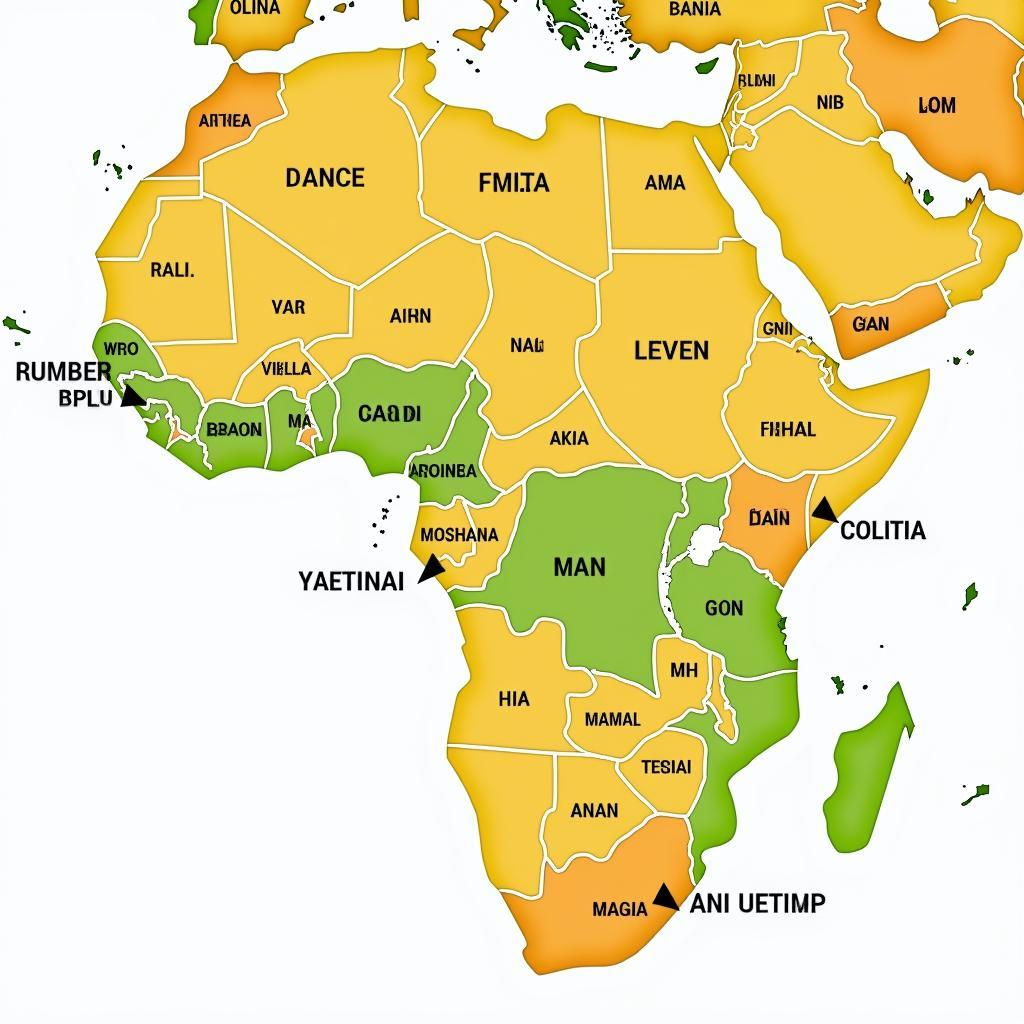African Anti-Rape Devices: A Complex Conversation
African anti-rape devices have emerged as a controversial response to the pervasive issue of sexual violence against women. These devices, designed to deter or incapacitate attackers, raise complex questions about effectiveness, ethics, and the underlying societal issues that fuel sexual assault. This article delves into the various facets of this sensitive topic, exploring the different types of devices, their intended purpose, and the broader implications of their use.
Understanding the Need for Anti-Rape Devices in Africa
The unfortunate reality is that sexual violence remains a significant problem across many parts of Africa. Cultural norms, legal loopholes, and inadequate law enforcement often contribute to a climate of impunity for perpetrators. This environment of vulnerability has led some to seek personal protective measures, including anti-rape devices. The desire for these devices underscores the urgent need for more effective solutions to address the root causes of sexual violence.
What motivates the development and use of these devices? Fear, desperation, and a lack of trust in existing protective mechanisms are key drivers. Women often feel compelled to take matters into their own hands, seeking ways to defend themselves in the absence of adequate support systems.
Types of Anti-Rape Devices and Their Functionality
Various anti-rape devices have been developed, each with its own mechanism and intended outcome. Some devices are designed to inflict pain on the attacker, while others aim to collect DNA evidence or alert authorities. Examples include devices that feature sharp barbs, emit loud alarms, or inject dye to mark the assailant. The effectiveness and safety of these devices are often debated.
Ethical Considerations and Potential Drawbacks
While the intention behind anti-rape devices is understandable, their use raises ethical concerns. Some argue that such devices promote a culture of victim-blaming, shifting the responsibility for preventing assault from the perpetrator to the victim. Furthermore, there are concerns about the potential for misuse or unintended harm to the user. The psychological impact of using such devices, both on the victim and the attacker, also warrants consideration. Can these devices truly offer a sense of security, or do they exacerbate existing anxieties?
Dr. Abena Osei, a sociologist specializing in gender studies at the University of Ghana, states, “While understandable, focusing solely on devices risks neglecting the deeper societal changes needed to address the root causes of sexual violence.”
Addressing the Root Causes of Sexual Violence
Ultimately, addressing the root causes of sexual violence is crucial for creating a safer environment for women. This involves challenging harmful cultural norms, promoting gender equality, strengthening law enforcement, and providing comprehensive support services for survivors. Education and awareness campaigns are essential for changing attitudes and behaviors. Investing in these long-term solutions offers a more sustainable approach to combating sexual violence compared to relying solely on personal protective devices.
Professor Femi Adebayo, a legal scholar at the University of Lagos, emphasizes, “Effective legal frameworks and robust law enforcement are paramount in deterring perpetrators and holding them accountable for their actions.”
The Role of Education and Empowerment
Empowering women through education and access to resources is vital. This includes providing self-defense training that focuses on situational awareness, de-escalation techniques, and assertive communication. These skills can empower women to navigate potentially dangerous situations and build confidence in their ability to protect themselves.
Conclusion
African anti-rape devices represent a complex and multifaceted issue. While they may offer a temporary sense of security for some, they are not a substitute for addressing the underlying societal issues that perpetuate sexual violence. Sustainable solutions require a comprehensive approach that focuses on prevention, education, legal reform, and support for survivors. Only through collective action can we create a society where women are safe and empowered.
FAQ
- Are anti-rape devices legal in Africa? Legality varies by country and the specific type of device.
- Do these devices effectively deter attackers? Effectiveness is debated, and there is limited data on their impact.
- What are the psychological effects of using such devices? The psychological impact can be complex and vary from person to person.
- Are there alternative methods for personal safety? Yes, self-defense training and situational awareness are valuable skills.
- What are the long-term solutions for combating sexual violence? Addressing cultural norms, strengthening legal frameworks, and supporting survivors are crucial.
- How can I support organizations working to end sexual violence in Africa? Research and donate to reputable organizations focused on prevention, education, and support services.
- Where can I find more information on this topic? Numerous resources are available online and through academic institutions specializing in gender studies and human rights.
For further support or inquiries regarding sexual assault and related matters, please contact us at Phone Number: +255768904061, Email: [email protected], or visit our office at Mbarali DC Mawindi, Kangaga, Tanzania. Our dedicated team is available 24/7 to provide assistance.



